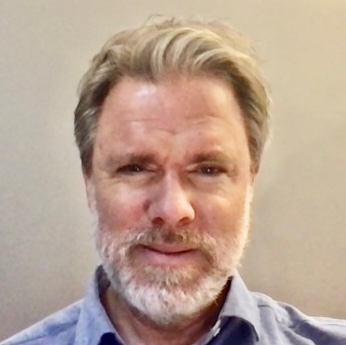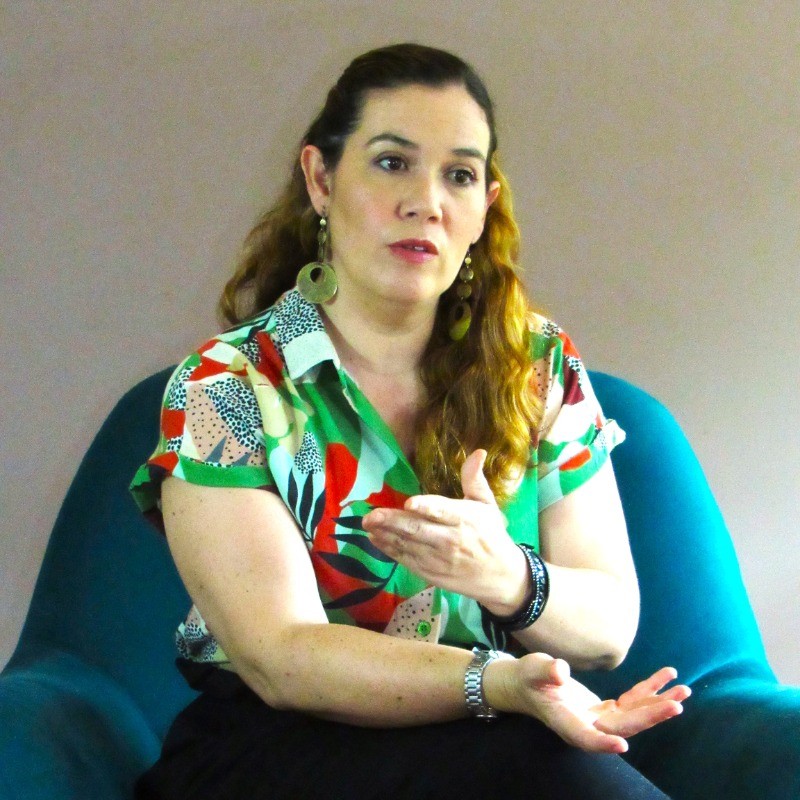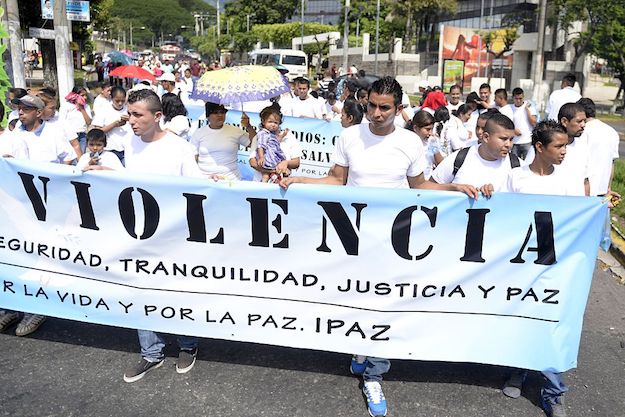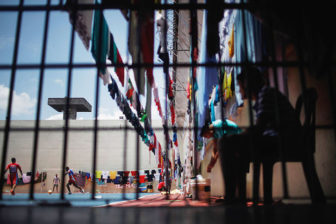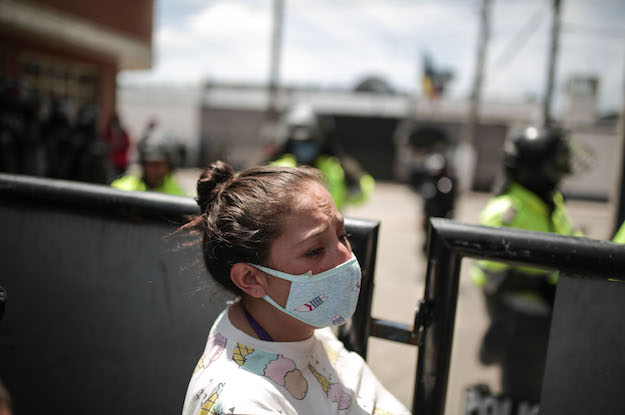This article has been corrected
El Salvador’s bloody civil war ended on Jan. 16, 1992, after 12 years of fighting that cost at least 70,000 Salvadorans their lives. Since then, gangs and organized crime have made El Salvador one of the world’s most violent countries.
But today, 26 years since the signing of the Chapultepec Peace Accords, El Salvador has reason to be hopeful: After years of sustained investment in security and violence prevention, the country’s murder rate is on its way down. The same is true of violence-plagued neighbors Honduras and Guatemala, where murder rates have fallen dramatically in recent years. This regional turnaround can offer lessons to policymakers from Brasília to Mexico City.
That’s not to say that all is well; violence in the so-called Northern Triangle is still tragically commonplace. But for a region that has at times seemed out of ideas for stopping violence, the drop is an encouraging sign. The question now is whether the region’s politicians will double down on prevention strategies that work, or revert to heavy-handed measures that do not.
El Salvador is perhaps the most instructive example. It ranked as the world’s most violent country in 2016, but since then has seen a marked drop in lethal violence. The murder rate dropped from a peak of 103 per 100,000 in 2015 to around 60 per 100,000 in 2017. While that is still three times higher than the Latin American average, a concerted focus on communities experiencing concentrated disadvantage could continue to drive down El Salvador’s murder rate.
El Salvador’s security services still frequently resort to aggressive tactics to repress the country’s most notorious gangs, MS-13 and Barrio 18. But alongside a controversial hard-line policy and emergency measures adopted by El Salvador’s government in 2015 is a more balanced and comprehensive approach focused on preventing the risk factors that drive up violence in the first place.
The El Salvador Seguro plan is a $2 billion anti-violence initiative adopted in 2008 with support from the United Nations (UN), the U.S. Agency for International Development (USAID) and a dedicated national council. The program focuses on four priorities: violence prevention and job creation, expanding state presence in the 50 municipalities, improving prison infrastructure, and spreading services for victims of crime.
Along the way, El Salvador’s public security budget swelled from $120 million in 2008 to $775 million in 2014. The government claims that the improvement of policing and investigation capacity and prison conditions is yielding some positive outcomes. Sustaining that progress will depend on whether the government decides to scale up its war on gangs or continue to pursue preventive measures.
Given recent successes of preventive efforts, El Salvador has an opportunity to shake the mano dura habit for good. But with national elections slated for later this year, the government and the opposition may be tempted instead to compete with each other on the “tough on crime” front.
Meanwhile, Honduras has also registered surprising reductions in lethal violence after years of topping the global murder charts. The decline actually started after 2011, when the country reported some 87 murders per 100,000 people. Today, the national homicide rate is just 46 per 100,000 – still an order of magnitude higher than during the mid-2000s, but a drastic improvement nonetheless.
Like neighboring El Salvador, Honduras has gradually adopted a preventive approach to try to stop violence before it happens. The Comprehensive Coexistence and Security Policy (2011-2022), implemented with the support from the UN, has built on extensive support provided by the U.S. to strengthen criminal investigation and community outreach.
The Honduran policy calls for a national council to set priorities and targets together with additional support to the attorney general, the judiciary and the Ministry of Defense. Since its launch, the public security budget has grown by 50 percent. Additionally, in 2016 the Inter-American Development Bank supported a major police reform program that led to the dismissal of thousands of unqualified officers. In contrast with El Salvador, Honduras has closed many of its badly managed prisons.
While registering a less dramatic fall than other countries in the Northern Triangle, Guatemala too has made impressive gains in public security. The murder rate there started falling in 2009, when it averaged 46 per 100,000. And while homicidal violence dropped just 4 percent between 2016 and 2017, last year’s rate of 26 per 100,000 is half of what it was eight years earlier, and close to the regional average.
There, the government launched a strategy called Plan Pandillas in 2011 with a deliberate focus on reducing lethal violence. Funding for the security and justice sectors increased between 2012 and 2016, with a focus on modernizing the civil police and penal systems. Guatemalan authorities also focused on improving coordination between prosecutors, the police, forensics departments and the courts to increase clearance rates and decrease impunity. What’s more, the government focused interventions on homicide hot spots, deploying new anti-gang units to address especially problematic situations.
These and other interventions have hardly been free of problems. In all three countries, there continues to be a dangerous reliance on emergency laws and extra-judicial measures to address domestic public security challenges. Corruption is still widespread, with police, criminal justice officials, and prison personnel implicated in organized crime. The availability of illicit firearms and ammunition and their continued leakage from public and private inventories is serious cause for concern.
Yet there are signs of a gradual turn to softer approaches to security, partly as a result of outside pressure from international and bilateral partners. After years of quiet investment, some of the benefits of this approach are becoming more apparent. A 2014 evaluation of community-based crime prevention programs implemented by USAID in Central America also confirmed that on balance, they were successful.
An increased focus on cities is also generating promising returns. More than 60 percent of the Northern Triangle’s population lives in urban settings, which explains why homicidal violence is hyper-concentrated there. One of the lessons from the region is that a dedicated focus on hot spots in major cities, whether San Salvador, San Pedro Sula, or Guatemala City, makes a difference.
The job is far from finished. After all, 2017 homicide rates in El Salvador, Guatemala and Honduras are still significantly higher than the Latin American average and almost seven times the global average. Prevention efforts are still too prone to political interference. Underlying challenges – structural inequality, concentrated disadvantage, systemic corruption and impunity, and a dangerous reliance on punitive approaches to public security – could just as easily wipe out recent gains.
But there is reason to be optimistic. Though still too common, mano dura-style policing is losing its veneer as an effective solution to the region’s violence. If recent experience is a guide, policymakers throughout the region should take heart in the fact that committing to realistic plans with clear targets can eventually deliver results, even in the world’s most violent settings.
This article was written in support of the Urban Security Exchange (USX), to be hosted by the Igarapé Institute, USAID and Foropaz from Jan. 22-23 in San Salvador, El Salvador
A previous version of this article misstated the number of years passed since the signing of the Chapultepec Peace Accords
—
Robert Muggah is the co-founder and research director of the Igarapé Institute and SecDev Foundation and SecDev Group, where Katherine Aguirre is a researcher.


